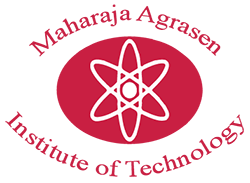POs, PSOs & PEOs
Program Outcomes (POs)
Engineering Graduates will be able to:
- Engineering knowledge: Apply the knowledge of mathematics, science, engineering fundamentals, and an engineering specialization to the solution of complex engineering problems.
- Problem analysis: Identify, formulate, review research literature, and analyze complex engineering problems reaching substantiated conclusions using first principles of mathematics, natural sciences, and engineering sciences.
- Design/development of solutions: Design solutions for complex engineering problems and design system components or processes that meet the specified needs with appropriate consideration for the public health and safety, and the cultural, societal, and environmental considerations.
- Conduct investigations of complex problems: Use research-based knowledge and research methods including design of experiments, analysis and interpretation of data, and synthesis of the information to provide valid conclusions.
- Modern tool usage: Create, select, and apply appropriate techniques, resources, and modern engineering and IT tools including prediction and modeling to complex engineering activities with an understanding of the limitations.
- The engineer and society: Apply reasoning informed by the contextual knowledge to assess societal, health, safety, legal and cultural issues and the consequent responsibilities relevant to the professional engineering practice.
- Environment and sustainability: Understand the impact of the professional engineering solutions in societal and environmental contexts, and demonstrate the knowledge of, and need for sustainable development.
- Ethics: Apply ethical principles and commit to professional ethics and responsibilities and norms of the engineering practice.
- Individual and team work: Function effectively as an individual, and as a member or leader indiverse teams, and in multidisciplinary settings.
- Communication: Communicate effectively on complex engineering activities with the engineering community and with society at large, such as, being able to comprehend and write effective reports and design documentation, make effective presentations, and give and receive clear instructions.
- Project management and finance: Demonstrate knowledge and understanding of the engineering and management principles and apply these to one’s own work, as a member and leader in a team, to manage projects and in multidisciplinary environments.
- Life-long learning: Recognize the need for, and have the preparation and ability to engage in independent and life-long learning in the broadest context of technological change
Program Specific Outcomes (PSOs)
PSO1: Capable of identifying the appropriate data structure and algorithms to design, implement and test effective solutions for real-world and research problems.
PSO 2: Capable of excelling in a variety of programming/project competitions as well as technical challenges set out by professional societies.
PSO 3: Capable to gain knowledge in diverse areas of Computer Science and apply that to a successful career, entrepreneurship and higher education.
Program Educational Objectives (PEOs)
PEO1: Our graduates will have successful careers in the computer engineering field or be able to successfully pursue advanced degrees.
PEO2: Our graduates will have the ability to provide innovative solutions to real-world challenging problems by applying computer engineering principles.
PEO3:Our graduates will be able to communicate effectively, work collaboratively and exhibit high levels of professionalism and ethical responsibilities.
PEO4: Our graduates will be able to identify research gaps, engage in life long learning and be a successful entrepreneur.
Process for defining the PEO’s of the Department






